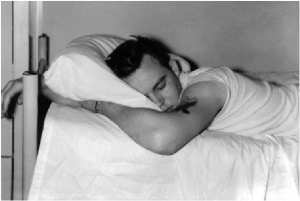
If you answered yes to these questions, you may need to consult your doctor immediately to determine if you are suffering from sleep apnea, a breathing disorder that can cause significant damage to your health.
Now, if you are diagnosed with this condition, you will definitely need to follow your doctor’s advice and make some necessary lifestyle changes if you want to get back to shape. And this is where adopting a sleep apnea treatment with a healthy Mediterranean diet comes in.
Understanding Sleep Apnea
Sleep apnea is medically defined as a common disorder that disrupts a person’s normal breathing pattern while he sleeps. In people with sleep apnea, breathing usually becomes very shallow and may even stop briefly for about 10 to 20 seconds several times during the night. In fact, it is not uncommon for people with this condition to experience such breathing interruptions hundreds of times during the duration of their sleep.
There are three types of sleep apnea – obstructive sleep apnea, central sleep apnea and complex sleep apnea. Of this three, however, obstructive sleep apnea is the most common – affecting about 12 million people in the US alone. That’s a lot of people who can benefit from adopting a healthier lifestyle as well as a healthier Mediterranean diet!
Symptoms to Watch Out For
Sleep apnea often goes undiagnosed, especially for people who live alone, since the symptoms only appear while a person sleeps.
Among the warning signs that you and your loved ones should look out for include:
- Loud, chronic snoring. People with sleep apnea may likewise make snorting or choking sounds while sleeping.
- Unnaturally long, abnormal pauses or gaps in breathing that may last for about 10 to 20 seconds.
- Unexplained night time awakenings and restless sleep.
- Waking up with a sore throat, a dry mouth or a headache.
- Sleepiness, irritability, poor vision and loss of concentration during the day.
If left untreated, sleep apnea can increase the risk of high blood pressure, diabetes, heart attacks and strokes. People with this condition are also more prone to driving and work-related accidents as a result of their daytime sleepiness.
Risk Factors
Sleep apnea does not discriminate. It can affect both the young and the old of both genders. However, those who are at a higher risk of obstructive sleep apnea include:
- Males, especially those who are overweight
- People over the age of 65
- Smokers
- People who are related to someone who suffers from the same condition
- People with smaller than normal air passageways in the nose, throat or mouth
How Can the Mediterranean Diet Help People with Sleep Apnea?
Recognizing the seriousness of the problem, people with sleep apnea should make the necessary lifestyle changes. They should start on a healthier diet, particularly the Mediterranean way of eating, and increase the level of their physical activity.
The effect of undergoing these changes are well documented in a randomized trial conducted at the Preventive Medicine and Nutrition Clinic at the University of Crete in Heraklion, Greece. In said study, 40 obese patients (with BMI equal to or greater than 30) suffering from moderate to severe obstructive sleep apnea were asked to increase their level of physical activity for six months.
Twenty people were randomly selected to adopt the Mediterranean way of eating (a diet dominated by fresh fruits and vegetables, whole grains, legumes and fish) while the other twenty were asked to adopt a prudent universal diet.
The results of the study showed that while both groups exhibited statistically significant reduction in their apnoea-hypopnoea index during rapid eye movement sleep, those who adopted the Mediterranean way of eating showed greater reduction on waist circumference (WC) as well as on their WC to height and WC to hip ratios.
Hence, by adopting the Mediterranean diet and incorporating physical activity in your daily routine, you can effectively help treat the symptoms of your sleep apnea and get a leaner, healthier body as a bonus!
What more can you possibly ask for? So, are you now ready to make that change? You should!
*If you’re serious, the links for access to learn more are below.
Ray Baker


